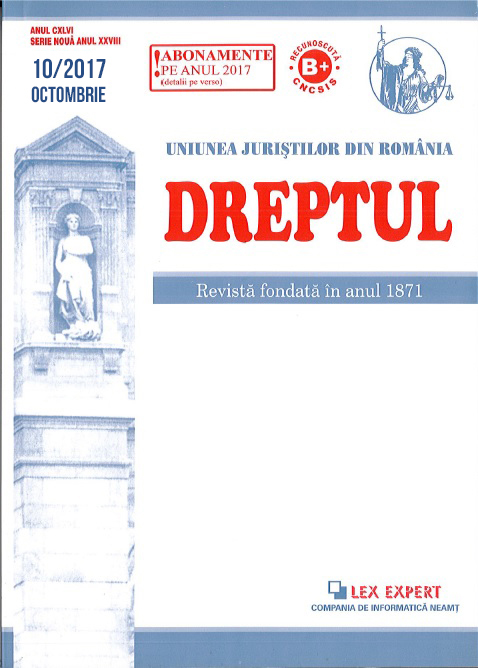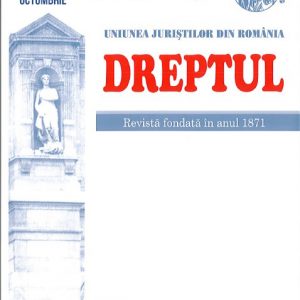The article proposes a discussion about the institution of the putative deed. Considering the fact that this institution does not know an explicit legal regulation, it gave rise to heated discussions in the specialized legal literature, which had not only a theoretical importance, but also a great practical importance. In the beginning of the presentation it is shown what is the correct name of this institution of criminal law, from the author’s perspective, arguing at the same time the opinion to which he understands to rally. It is shown that the putative deed corresponds to an inverse error either of law or of fact. Given that, in a first hypothesis, the author considers that the deed committed is incriminated by a rule of criminal nature, although in reality such an activity is not incriminated or, in another hypothesis, although the author’s deed is incriminated by the criminal law, the actual manner of committing the deed does not fall within the respective legal text. Similarly, it is also presented perhaps the most heated discussion in the legal literature, namely the one in which the author executes certain acts of execution with the intention of killing a person, not knowing that he had died prior to the moment of beginning the activity. It is shown that, given the legal reality in our country, at this time, the perpetrator has to be held liable for committing a putative deed, not an attempt, whether a punishable or non-punishable attempt is discussed. At the same time, it is stated that the judicial practice has retained the commission of a putative deed, and not of an offence, in the hypothesis that it is required a qualified active subject for committing a certain offence and the person who committed the deed did not act in this capacity. In the author’s opinion, in such a hypothesis, it will not be retained the commission of any offence, but only the commission of a putative deed, only in the situation that the deed committed does not represent another offence. At the end of the article conclusions are drawn, also showing how the legislator could intervene in order to put an end to the discussions arisen in the legal literature and, at the same time, in order to enable possibly the sanctioning of the persons who commit putative deeds which pose a high social danger.


